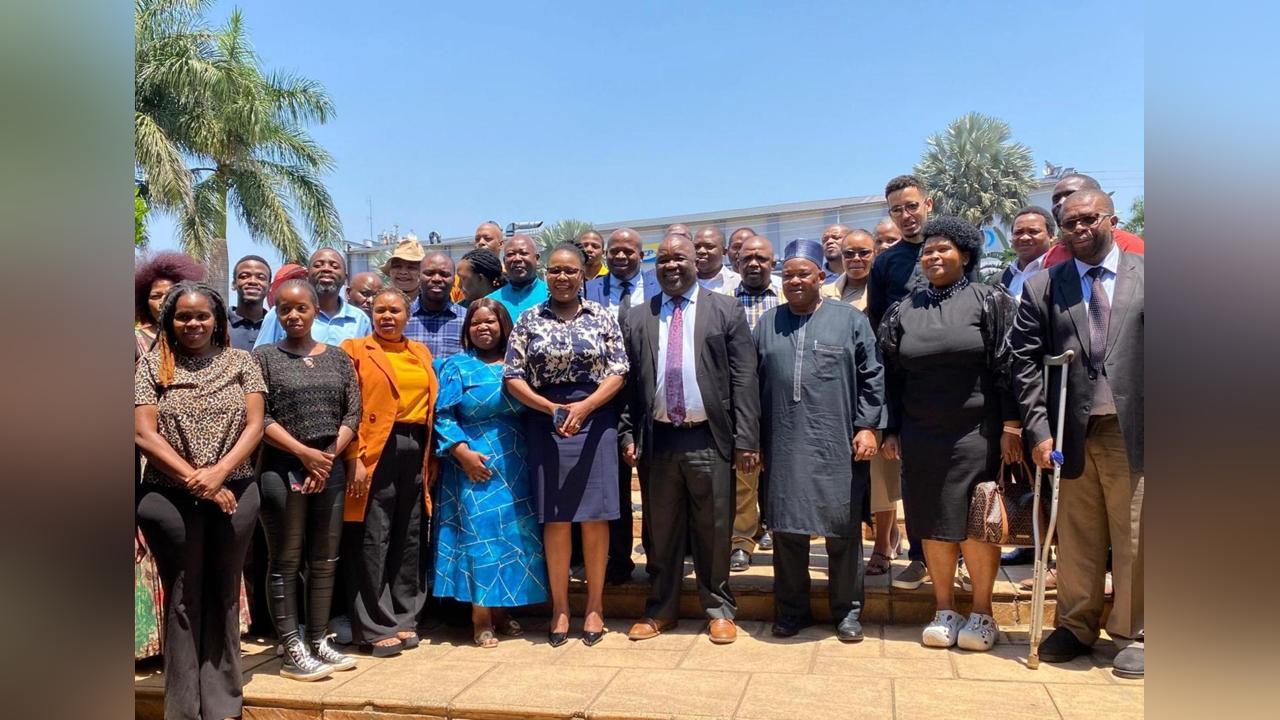Africa-Press – Eswatini. Eswatini has officially joined the African EdTech 2030 Programme to modernise its education system through technology.
The Minister of Education and Training, Owen Nxumalo, officially declared the country’s participation today during the EdTech 2030 workshop held at Happy Valley.
The EdTech 2030 Vision is a continental plan that aims to transform education systems across Africa by promoting innovation, inclusivity, and resilience through technology. Minister Nxumalo said Eswatini is fully committed to adopting and supporting this vision, ensuring that every child in the country is prepared for a technology-driven future.
“Education must evolve with the world,” Nxumalo said. “Technology is no longer just a tool, it is the engine that will shape equality and innovation in our schools.” He explained that Eswatini will align its national education strategies with the regional plan to strengthen digital learning and bridge the gap between urban and rural schools.
Nxumalo said the country has already made significant progress through initiatives such as the Eswatini Learning Passport, digital laboratories in schools, and the World Bank Pilot Project focusing on integrating ICT to improve teaching in mathematics and science. He highlighted that with support from partners such as UNICEF, the Learning Passport now includes content for upper primary, junior secondary, and senior secondary learners.
Dr. John Kimotho, Chairperson of the SPIX Foundation from Kenya, shares insights from Kenya’s successful education technology programmes and demonstrates practical digital tools such as interactive learning platforms, digital assessment systems, and teacher support applications. He explains that these platforms help teachers to plan lessons more effectively, track learners’ progress in real time, and provide immediate feedback to improve performance. They also make learning more engaging through multimedia content and interactive exercises, ensuring that no learner is left behind. By integrating such technologies into classrooms, schools can bridge learning gaps, strengthen literacy and numeracy, and promote inclusive education for all learners.
Nxumalo also addressed the challenge of high data costs and limited internet access, which prevent many learners, especially in rural areas, from benefiting from digital learning platforms. He called on private sector partners, particularly telecommunication companies, to collaborate with government to develop affordable and sustainable data solutions.
The Minister declared the workshop officially open, urging all participants to use the platform to create strategies that will advance Eswatini’s education through technology, marking a new chapter under the EdTech 2030 vision.
For More News And Analysis About Eswatini Follow Africa-Press







